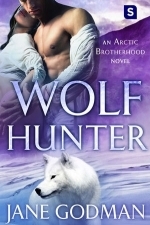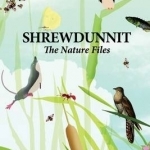Nicole Hadley (380 KP) rated Mae and June and the Wonder Wheel in Books
Jun 16, 2018
This is a very positive, fun story for beginning readers. The illustrations are very helpful in showing what is going on in the story and add a lot to it. Other nice touches are June's sometimes cranky teenage sister, the fact that Mae is a character of color without this fact taking over the story, and the adventure of the wonder wheel. This was a cute book about friendship, about pets, about family. June was a fabulous little kid, though a bit too much over the top at times. Still I liked how she stayed true to herself

The Finishing School
Book
How far would you go to uncover the truth? One spring night in 1998 the beautiful Cressida...

Everyone's a Aliebn When Ur a Aliebn Too: A Book
Book
Everyone's a Aliebn When Ur a Aliebn Too: A Book is the illustrated story of a lonely alien sent to...

Wolf Hunter (Arctic Brotherhood #5)
Book
The fifth book in the new Arctic Brotherhood series--heart-pounding werewolf romances by Jane Godman...
Paranormal Romance

The Court of Miracles
Book
Les Misérables meets Six of Crows in this page-turning adventure as a young thief finds herself...
Alternate History Paris France Les Miserables Retellings Historical Fantasy

The Labyrinth of the Spirits
Book
In the heart of Barcelona's winding alleyways, Daniel Sempere runs the Sempere & Sons bookshop - a...
Lottie disney bookworm (1056 KP) rated The Wolf Den in Books
Jun 17, 2021
“May I know love’s power, if never its sweetness.”
The Wolf Den is a magnifying glass into the world of Pompeii’s prostitutes: forgotten women who are owned and controlled by both men and society. This no-holds-barred novel follows Amara, a beautiful and educated doctor’s daughter who was enslaved after the death of her father and now is a she-wolf, a prostitute in Pompeii’s largest brothel, The Wolf Den.
Elodie Harper’s novel is told entirely from Amara’s perspective. This gives our main character a rare sense of power, the power to provide names to these previously nameless women and to make the reader care for these women, becoming entirely invested in their story. Alongside Amara; Dido, Victoria, Cressa, Beronice and Britannica experience violence, desperation, pain and loss but also highlight the power of friendship. This is not an easy read at all but Harper’s characters are so captivating it was impossible to put this book down.
Amara herself is such a complex character: she has an overwhelming amount of inner strength as she accepts her fate as a slave. At times this is heart-breaking when you gain glimpses of her previous life but accepting her fate does not mean Amara ever stops striving for freedom. She may have to change her idea of what happily ever after consists of but Amara will never stop working towards it, no matter the cost.
By no means is Amara perfect, there are definitely some questionable actions by our protagonist. However, Harper paints the she-wolves lives so acutely and tragically that the reader can never blame Amara: we don’t always agree with her actions but you can see that she has to protect herself because she literally has no one else to do it for her.
Amara is also clever, sometimes too clever for her owner Felix who is quick to punish her for speaking out of turn. However, once Amara proves that her previous education can be profitable, Felix is on board, taking Amara down a new path and raising the reader’s hopes of a happy outcome for our favourite she-wolf. This is a credit to the characterisation within this novel: that as the readers witness possible happy endings being ripped away, our sheer desperation increases with Amara’s.
Despite her fascinating characters, Elodie Harper does not rest on her laurels and completely immerses her readers in the landscape of Pompeii. From the filthy cobbled streets to the graffiti to the shops, inns and sellers in the forum, everything is described in the most magnificent historical detail.
Harper also entrenches her characters in the class system, whereby a customer of a higher social status is often a target but seemingly out of reach for the she-wolves: a lower class of man is easy to attract but can often be violent. And love? Well that is just a fantasy!
Initially I have to tell you that I was slightly disappointed by the ending of The Wolf Den: the chapters leading up to the finale were so emotional and action-packed that the final lines almost fell flat. HOWEVER, this was all turned on its head when I was told The Wolf Den is merely the first in a trilogy! Now that I know Amara will be back I am eager to see what else she has in store for us.
Thank you to Netgalley for the opportunity to read this e-ARC in exchange for an honest review.

The Wife: A Novel
Book
His Scandal Her Secret From New York Times bestselling author Alafair Burke, a stunning domestic...
mystery thriller

Shrewdunnit: The Nature Files
Book
Conor Mark Jameson has spent most of his life exploring the natural environment and communicating...

The Craving (The Vampire Diaries: Stefan's Diaries #3)
Book
The third book in the New York Times bestselling series by L.J. Smith. The Craving is the third...

